Villains: The Good, The Bad, and The Ugly
Villains: without them, there would be no heroes.
But where do villains come from? What causes a person or a being to go down that dark path? And do they realize what they’ve become?
I once read that a villain is the hero of his or her own story. I’m not sure if that is true for every villain. After all, some villains know they are bad and they don’t care. But there are others who think they are the good guys. I then realized that in the broad scope of things, you could break villains down into three categories: the good, the bad, and the ugly. So let’s start with the good villain.
The Good
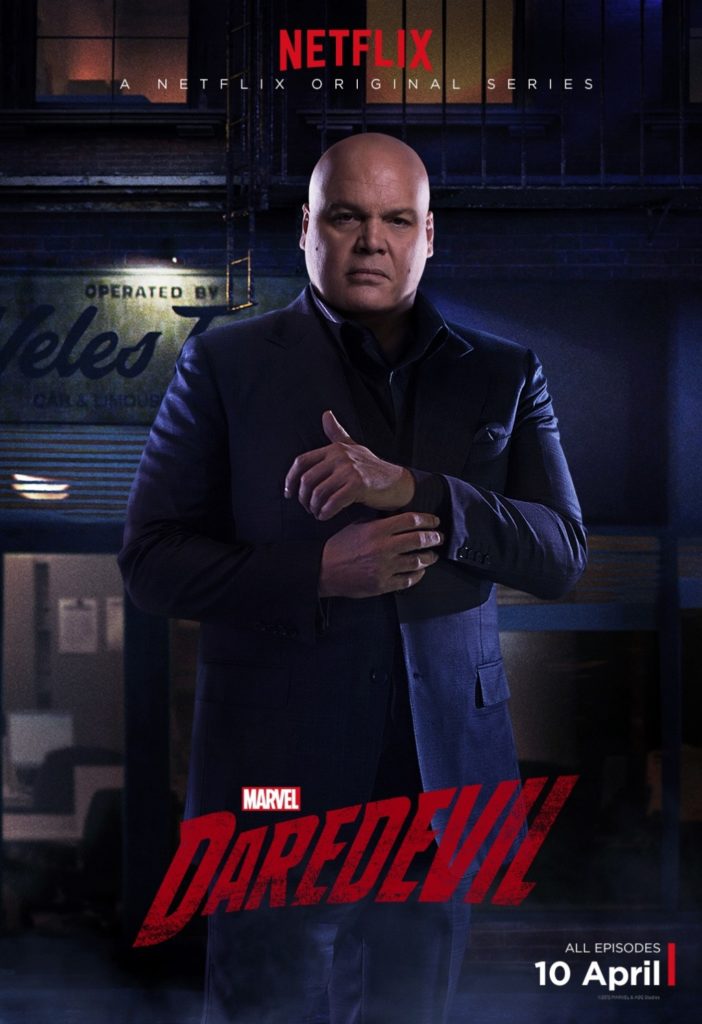 These are the villains who believe they are saving the world. Or they believe that the end justifies the means.
These are the villains who believe they are saving the world. Or they believe that the end justifies the means.
I’ve been watching Daredevil over the last week and a great example of this type of villain is Wilson Fisk (aka Kingpin). The writers for Daredevil have done an excellent job creating a sympathetic—even likable villain—in Fisk. He wants to save Hell’s Kitchen, the neighborhood he grew up in. And when his back-story is revealed, you understand where he is coming from.
But what Fisk doesn’t seem to realize (but the viewer does) is that he is going about it all wrong. You can’t work with bad guys and expect a good outcome. You can’t murder and manipulate and expect people to be fine with that. As one character pointed out during an episode, Fisk is going to have to choose who he is: dark or light. But he can’t be both.
Another villain who believed he was saving the universe is Jacen Solo. In the Star Wars EU, Jacen Solo is the son of Han and Leia and twin brother of Jaina. As an adult, he begins to have force visions of the future where galactic war breaks out. In order to prevent this, Jacen goes further and further down the dark-side until he becomes a Sith himself. He never recognizes what he is doing—or who he is hurting— in order to save the universe. To him, the end justified the means.
The Bad
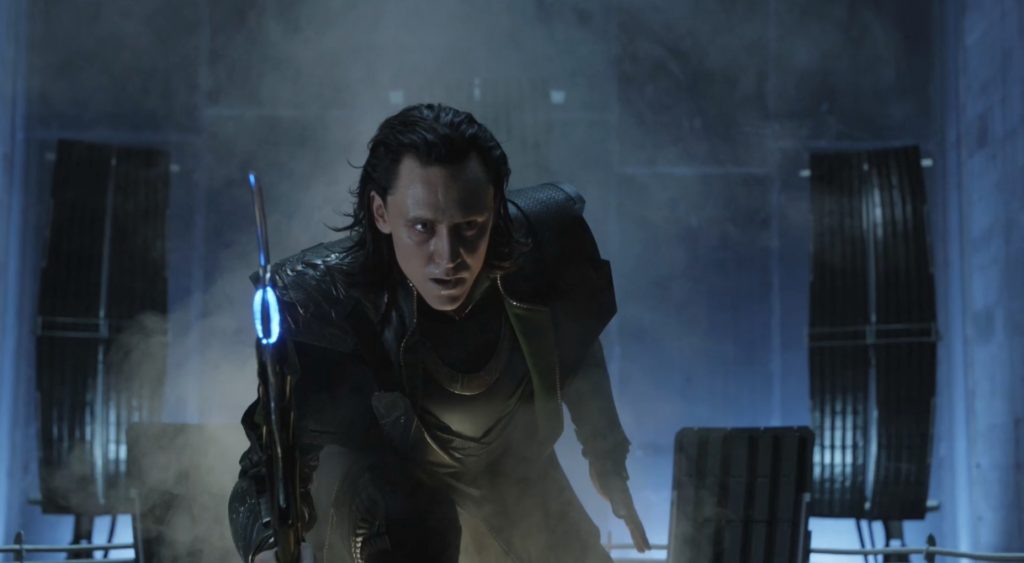 However, not every villain sees himself as good. There are those who have been hurt so bad that they don’t care who they hurt back. Or they believe they are better than everyone else. And some just want to see the world burn.
However, not every villain sees himself as good. There are those who have been hurt so bad that they don’t care who they hurt back. Or they believe they are better than everyone else. And some just want to see the world burn.
Loki is what I would call an elitist villain. He sees himself above everyone else.
Loki: “I’ve come too far for anything else. I am Loki, of Asgard and I am burdened with glorious purpose…”
Nick Fury: “We have no quarrel with your people.”
Loki: “An ant has no quarrel with a boot.”(The Avengers, 2012)
Loki gives no thought to the humans of Earth because compared to him, they are nothing—just ants.
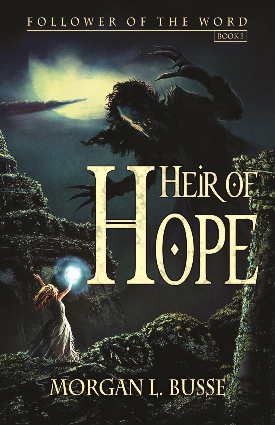 My own villain from Heir of Hope—Valin, one of the Shadonae—is also an elitist. A being with the power to twist a person’s mind and reality, he can control anyone he touches. When he was younger he left his people behind to find his way in the world. He discovered quickly that most humans are suspicious of anyone with power. When they found out Valin was different, they tried to kill him. This flamed a hatred inside Valin’s heart toward mankind. That, coupled with his superior abilities, caused Valin to believe he is above humans and there is little reason for them to exist. They are only pests to be eradicated or consumed.
My own villain from Heir of Hope—Valin, one of the Shadonae—is also an elitist. A being with the power to twist a person’s mind and reality, he can control anyone he touches. When he was younger he left his people behind to find his way in the world. He discovered quickly that most humans are suspicious of anyone with power. When they found out Valin was different, they tried to kill him. This flamed a hatred inside Valin’s heart toward mankind. That, coupled with his superior abilities, caused Valin to believe he is above humans and there is little reason for them to exist. They are only pests to be eradicated or consumed.
And we all know The Joker from The Dark Knight. He has no delusions that he is a good guy (he has other delusions, but not that one). He thrives on chaos and violence and his only ambition is to smile and watch the world burn.
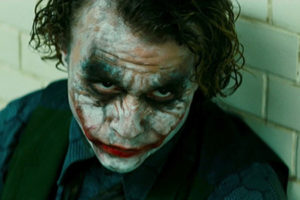 The Ugly
The Ugly
Lastly, we have those villains who are more disgusting than scary. The best example of this is Jabba the Hutt from Star Wars: Return of the Jedi. I don’t know anyone who is scared of Jabba. However, he is definitely ugly and worthy of this category.
Conclusion
Villains, just like heroes, evolve to become who they are in the story. For some it is a drive to see things changed for the better, but at the cost of lives and even themselves. For other villains, a deep hurt drives them to hurt others. Then there are those who believe they are better than anyone else. And finally those who are rotten to their very core, and may even look like it on the outside.
Villains are a necessary evil (yes, I went there). They give us a glimpse of what could happen if the hero makes the wrong choice. They can even be a warning to us, showing us our own dark potential. Good, bad, or ugly, villains will always be a part of great stories.
So who is your favorite villain? What kind of villain is he or she? In what category would you place him or her?



































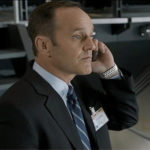





I have a love/hate relationships with villains. I hate what they do to my favorite characters but I love how they make the story compelling. J.K. Rowling created some of the most complex and interesting villains. Voldemort and Bellatrix Lestrange are two that come to mind. Both are elitist villains. Then she also creates a villain like Severus Snape who ends up surprising you. 🙂
Yes, Snape was really surprising! He loved Lilly, but I don’t think he ever figured out that when you love someone, that love opens up your heart. And his heart never went past Lilly.
Morgan, this is an excellent article. I never thought about villains beyond their evil intents and sometimes their past. As I think about those evil characters in the books I’ve read, I can see them falling into the categories.
My favorite villain would have to be Dictator Snow in the Hunger Games. He wants what he wants, no matter what it takes or who is killed.
Hmm, the villain in my book is definitely in the “Bad” category.
Thanks for an eye-opening way to look at them.
Dee
Dee, I think it took me writing my own books with my own villains to see how multifaceted they could be. They’re not just bad (even though they are) they are bad for different reasons and in different ways. Thanks for stopping by!
I’m trying to decide how I would classify Darth Vader. He seems to actually fit in the “good” category. He joins the Dark Side to “hopefully” save Padme, and later, he’s serving the Empire by getting rid of the rebels. (However, the Emperor is a “bad” villain.) But I feel like there can be a danger of sympathizing too much with the villain. That’s why I’m skeptical about stories like Wicked. When we try to justify a villain’s actions, we might stop seeing them as wrong.
Do you think a villain in any of the three categories can be redeemed? Or only the “good” ones?
You know, I forgot about Vader doing what he did to save Padme (I try to forget the sequels were made sometimes ;).
I agree with you there. I never liked Wicked either. I think it is good to sympathize with the villain because we see that spark of humanity still left in them and we hope that spark wins out in the end (even though it usually doesn’t). And when we do see a villain saved, we believe then we can be saved ourselves.
But it is a fine line between sympathizing with the villain and accepting what they do. Villains are villains for a reason: because they hurt people. I’m trying to think of a villain right now that didn’t hurt a person, but can’t think of one off of the top of my head. Hurting people is never ok. That is why I don’t like watching heroes who are ok with hurting people to reach their goal.
As far as redemption for villains, I think it depends on what you mean by redemption: a cleared case in court? No consequences for past actions? Eternal forgiveness and salvation?
It’s interesting you ask this because when I was writing Valin, I cared about him. I knew his past, I knew his thoughts, I knew his heart. And I wanted him to be saved. But I also knew that he would not choose that path. Each choice we make changes us. His choices changed him into the being he became, one that could not see past his hurt and hatred. And so in the end… well, you’ll have to read the book 😉
But I do believe that by God’s power, anyone is redeemable up until the moment they die. Even villains. Look at the thief on the cross.
By redeem, I meant turned back to good/saw the error of his way. Like Darth Vader. Or the Apostle Paul. He thought he was doing the right thing by persecuting Christians, but then he was saved.
Can you think of a villain who was completely evil–on the “bad” side of the scale–who was redeemed? I’m guessing there’s some example.
Actually, a webcomic I read, Archipelago, might have a case of that. I won’t say more *spoilers again*.
Sauron is an example of a totally bad villain – beyond redemption.
I’d have to say, I love elitist villains. They’re fun to write, fun to watch as they grapple with the dichotomy of power not equalling success. They also have the best lines. 😉
Like Loki? 😉 Love Loki!
Wait, Jacen becomes a Sith?! 🙁 I used to read some of the EU books about the twins as teenagers, but I guess I never got that far in their story. How sad!
My favorite villain is Zuko from Avatar: The Last Airbender. I know (SPOILER!!) he eventually turns around and is no longer a villain, but his character development was soooo good.
The villain in my book is sort of a mix of good and bad. He’s good toward his own people – his motives are to make a new home for his family and alien race. So he does think he’s saving his people. But he’s like Loki in the way he looks at humans and the other human-like race in the story. He has no qualms about wiping them off the face of the earth or torturing them brutally, because he sees them as inferior.
Bethany, you know I tried to figure out if I should say spoilers, but are they spoilers if they don’t exist in the established world anymore? *grin*
I love Zuko! I would consider him more of an anti-hero than a villain. And if you’ve read my books, you know how I like my anti-heroes 🙂
True, it’s not really a spoiler anymore. That’s why I didn’t say, “Hey, that was a spoiler!!” 🙂 But I enjoyed reading those back in my Star Wars loving days.
Ah, you’re probably right about Zuko being an anti-hero more than a villain. But I’m not a huge fan of anti-heroes, 😉 unless they are played more like villains, I guess!
‘Ware spoilers:
I wouldn’t say that Zuko is even an anti-hero (which implies some state of permanence). Instead he’s a repentant villain: a villain-turned-total-hero.
There was a gifset (see below; I couldn’t embed the link) I saw not that long ago that said a “villain is a victim whose story hasn’t been told .” Heretical ! And even with the characters chosen, they ranged from elitists (Loki) to formerly brutalized characters who chose revenge (Magneto), but there’s a difference between understanding why villains do what they do and excusing them. And I second Alex’s concerns.
http://aslanscompass.tumblr.com/post/96638594733
Yeah, I don’t agree with that assessment as well. Not every villain is a victim. And even if they are a victim, they are still responsible for what they have done. For a villain to truly seek redemption, that first step is to accept responsibility for their actions. Until they see what THEY have done, they can never move forward.
One of my favorite villains is the lich sorcerer Xykon from the web comic Order of the Stick. He is definitely “bad”, though i’m not sure he counts as elitist, either. He’s a straight-up psychopath (or sociopath; i’m never sure which of those words to use) who gets his kicks from murder and chaos, and nothing else.
His right-hand goblin, Redcloak, would fall under Good. His goal is, and always has been, to get a better deal for the goblin people of his world. His motivation comes in part from the destruction of his childhood village – something only he and his little brother escaped. But noble as his goals are, his partnership with Xykon has resulted in the unjustified deaths of countless people.
What’s interesting about Redcloak, too, is that he’s already been forced to confront that fact. He’s not the hero of his people he wants to be, and if he doesn’t realize that, it’s only because he’s denying it to himself.
In general, i think i like Bad villains better. The few Good villains i like that i can think of off-hand tend to make me uncomfortable — maybe because the fact that i like them makes it hard to watch them behave badly, i don’t know.
Anyone here a fan of stories where the villain is the protagonist? In a way, the plot of Shardik (a book by the same man who wrote Watership Down), is about the main character discovering he has behaved villainously, albeit for a Good cause, and trying to fix it.
I would say that there are, for audience reaction, also three villain types. There are those you truly want to see redeemed, those you know are evil but can’t help liking, and those who you hate and want to see beaten. I’d say Vader, Loki and Fisk, and the Emperor represent these three respectively.
I adore my villain, Tzmet. She was a spoiled child who now thinks she can do anything she wants because she’s always been able to. But when her world is rocked, she begins to see she’s not that important. There are so many layers to her personality, I can hardly take my eyes off her. HA! The challenge for me is to make my heroine just as interesting. That’s where I am in my revisions now.
Has anyone read The Host by Stephanie Meyer? Now there’s a main character who is both hero AND villain! At the same time. It fascinates me. If you’ve read the book, what do you think about Wanda? I haven’t seen the movie, but have been told it’s not that good.
And Jabba the Hut – oh yeah … truly ugly. I still shiver when I see that nasty tongue lick his lips when he has Leia captive. *shudder*
I have to say my favorite TV villain was Sylar from HEROES. At least, in the beginning. As soon as he came in on a scene, I could feel the tension in my body. But then he got wimpy and I didn’t like him anymore. I’m kinda feeling that way about Regina in Once Upon A Time, too. She was a much better villain than a good witch. And the storyline of the show is just stupid now, but that’s a different subject. 😉
Totally agreed about Sylar, and OUAT! Sylar was great (at first) and so was Regina (at first). 😛
And I’ve read The Host and really enjoyed it…I didn’t think of Wanda as a villain, though.
But Wanda really is a villain at first, right? The souls are taking over the humans and she’s part of that plan. *spoiler alert* Then she realizes what it’s like to BE human. She gets to know Melanie. And she becomes the hero. I love her so much.